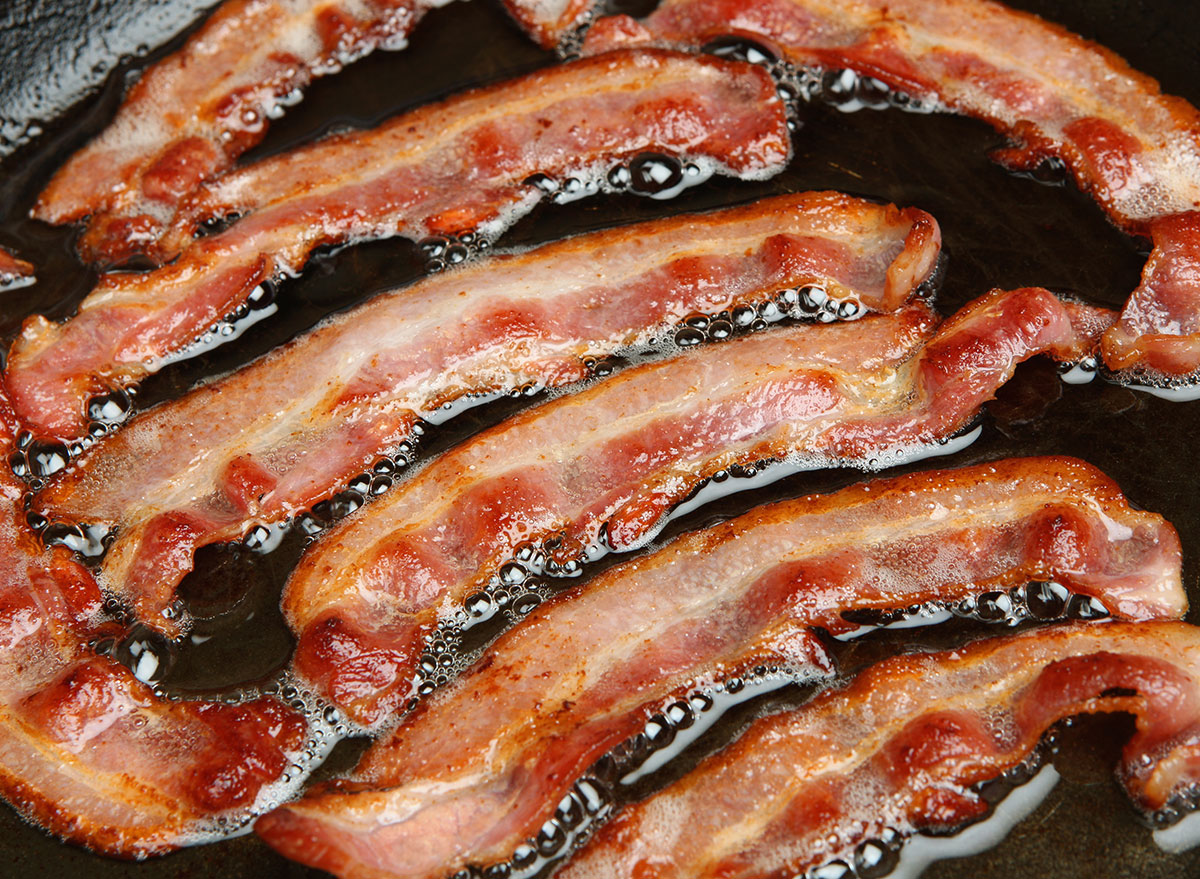You Shouldn’t Put Frying Oil Down The Drain—So Where Should You Put It?

Whether you fry a lot of food or do so moderately, knowing how and why you shouldn’t put frying oil down the drain is valuable information. That’s right—it’s not what you’re supposed to do once you’re done cooking! We relied on the corporate executive chef for INK Entertainment USA, Patrick Ochs—who is also launching two brand-new restaurant concepts at Celino South Beach, Pubblica Italiana and Dalia—to explain the ins and outs of everything you need to know about how to dispose of cooking oil, and even how to reuse cooking oil for frying purposes. But let’s start with the big question…
Why is it important to not pour frying oil down the drain?
Ochs illustrates exactly what occurs when you dispose of oil in this fashion.
“You should never pour any cooking oil or grease down your kitchen drain because it will eventually block the pipes. When hot oil or grease cools down, it becomes solid and will then stick to the inside walls of your kitchen pipes. Over time, the solids will continue to build up and eventually completely clog the pipes, which can lead to flooding and sewage backups,” he explains. “Not fun!”
How do you dispose of cooking oil properly?
Ochs says there are a couple of ways to properly get rid of frying oil so that it doesn’t cause any damage.
“One of the main ways to dispose of frying oil at home is to first allow the oil to cool down after cooking, then pour it directly into any metal can at your disposal, and then you’re able to toss it to the trash,” he says.
OK, but what if I don’t have a metal can accessible?
“If you don’t have a can, you can use a plastic bag, soda can, or plastic bottle—all will work just as well,” Ochs explains. Another kitchen tool that may be of value for disposing of frying oil is a funnel.
“Having a funnel at home is also a very helpful tool used when pouring,” he says. “If you are a gardener and have a compost in your backyard, you can pour any frying oil that was used to fry vegetables directly on top.”
Ochs also offers an eco-friendly way to dispose of frying oil. He suggests pouring the oil into a larger container, like a gallon milk jug for example, and then seal it.
“Once full, you can drop off the oil at your local recycling center, which can then be made into biodiesel,” he says.
Can you re-use frying oil? If so, how do you store it?
“A lot of people are unaware of this, but you can reuse frying oil,” says Ochs. However, there is one important step you must take and that is you must strain out any leftover remanents, either by way of a coffee filter or even a colander.
“If the food particles are not removed, it can cause the oil to become rancid or even worse, accumulate mold,” he explains. “There are two ways to store cooking oil.”
1) In an airtight container at room temperature.
2) In a refrigerator for a longer shelf life. Keep in mind, though, you should only store used oil for up to 3-4 weeks tops.
“When reusing oil, one should keep in mind that the oil fuses the flavor of what you are cooking,” Ochs explains. This is important to note if you’re trying to recycle this cooking oil for another use.
Any tips on how to use less oil when frying?
“A quick tip on how to use less oil when frying—when frying an item, pour a little oil at the beginning of your frying process, just to coat the bottom. It is always easier to add more oil if needed rather than pour excess oil out,” says Ochs. So stop drowning strips of bacon in oil and—instead—try and only add a conservative amount of oil to the pan. Something else Ochs encourages cooks to keep in mind is that not every oil is the same.
“One should also know that there are many different types of oils. All oils have different burning points. You need to understand what you are cooking so you know what type of oil should be used for that specific food item,” says Ochs. “Do not mix oils if reusing! Try to reuse oils when you can, but avoid using more than two times.”
Now you know why and how you should dispose of cooking oil.